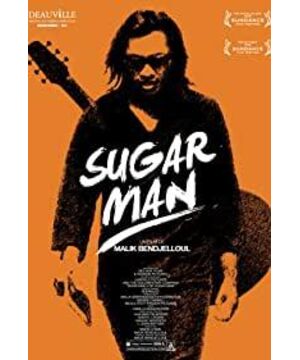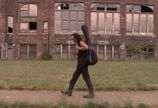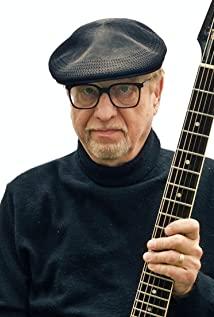Song "Street Boys" (1971) Rodriguez's youngest daughter, Regan Rodriguez: He never said that he was disappointed, he just kept on going, living on because he couldn't give up easily. Music Reporter: What would he do? Regan: He reads a lot, he goes to politics, he goes to community events, he goes to demonstrations and rallies. As long as it is something he believes in, he will take us with him, and he has been serving the people. Maybe for those who don't have a chance to speak. Working class, poor laborers. He has a lot of experience in these areas. Construction worker colleague Rick Emerson: He doesn't approach his work the way most people do. His attitude was very serious, as if doing holy work. He would do the dirty work for eight to ten hours, but would wear a dress. He has that incredible temperament of a poet and an artist, transcending the mundane, transcending the ordinary. Nonsense and mediocrity are all over the street, and artists are the pioneers. Even if his music dream is broken, his spirit is still there. He just needs to find a place to hone his skills in expressing his ideas, and he knows there are other ways than music. Back in the early eighties, he wanted to make a difference, he wanted to do something right, to change society, so you stood up and he told me he was going to run for mayor and I just wanted to God bless you if you could As mayor of Detroit, anything is possible. eldest daughter Eva Rodriguez: These are old things from my father, the tail sticker of the first campaign, the photocopies of the voting results, and he never won an election. My mother's family was European and Indian, and my father's was Mexican. My grandfather was Mexican and came to Detroit to work in an auto factory, so we were working class. We've moved 26 times, and some houses don't even have bedrooms. Some houses don't have bathrooms, it's not home, it's just where we live. However, just because people are poor and have no money does not mean that they do not have lofty ideals, and it cannot be said that they are not rich in spirituality, but there is such a prejudice in the upper class, and there is a difference between you and me. Song "The Most Disgusting Song" (1971) Rodriguez: I sang in many places, gay bars, sex bars, motorcycle funerals, opera houses, concert halls, drug rehabs. I find these places where I perform, the same people who watch me perform. Younger Daughter: He doesn't just do day-to-day carpentry, he cleans the house, does work that other people don't want to do, and comes home full of dust and paint. I've seen him carry the refrigerator downstairs, that's his day job, and he works harder than many fathers I know. This city tells you not to dream too much, not to expect too much, but he always takes me to places that only the elite can go. Second Daughter Sandra Rodriguez-Kennedy: He's teaching me, no matter what the bank statement says, just go. He showed me the landscape of high society, and I felt as good as the elite. He majored in philosophy in college. My father kept us in touch with the arts. He made us go to the library, the museum, and the science hall, which was our nursery. The eldest daughter: We walked through the halls of the museum with paintings by Diego Rivera, paintings by Picasso, paintings by Delacroix, and we began to understand the world outside the city, the world in books, in paintings, in music . Song "Lifestyle" (1971) Rodriguez: I started singing when I was sixteen, I used a family guitar, I played in many bars, clubs and small rooms in the city, and then I met Mike West Otto and Dennis Coffey, they came to the club to see me play (in 1969), and I played at the Sewer Bar, which was right next to the Detroit River, and then Clarence Avant and I signed a record deal, And that's how we started. But I did a lot of work in the early years, I worked at the factory that made Lesler cars, the factory was called Dodge Mayne, and I also worked at the auto plant on Eldon and Lynch Road in Detroit, in the heat treatment department and things like that , a lot of heavy live. But that year was a good year for me. "Cold Facts" came out. I achieved what I wanted to achieve, and with results, I felt that everything was going well and my self-worth was realized. Reporter: Do you think this is an excellent album? Rodriguez: I tried my best, and the reviews were good. I think it's an excellent album. But it is not appropriate to ask me. Reporter: Are you surprised that records are not selling well? Rodriguez: This is the music industry, nothing is guaranteed. Sugar Man: So I told him, you're more famous than Elvis. What did he mean by that? I said you were more popular than Elvis in South Africa, he stopped talking, I sensed he thought it was a harassing call. I said right away, listen to me, don't listen to me, I promise, come here, you won't be disappointed. co-workers Emmerson: He was in Woodbridge, working really hard, and one day he brought a milk carton with his picture on it, and he said, Emerson, look at this, they're looking for me. I ask him why? The next day he said, Emerson, I'm going on tour. I said less to Rodriguez, are you telling the truth? Journalist writer Ryan Mullen: Because I'm a journalist, I'm skeptical. There is no such thing in a rational society, which is contrary to providence and the laws of nature. This guy on tour must be an impostor, it's a well-crafted PR scam, it's not even well-crafted, it's a stupid scam, but I was wrong. March 2, 1998 Edie: We got off the plane very nervous, it was a long journey, the luggage was heavy, we walked out of the airport. Suddenly two or three limousines stopped, we were sure the car wasn't here to pick us up, and we walked around. But it did come to pick us up. That's how it all started, a completely different world. Just like people do with celebrities like Madonna, superstars show up, reporters, production assistants and others all over the place greet him at the airport and take us to the VIP suite. Edie: The white carpet, we never dreamed of it. Sugar Man, March 5, 1998: He got in a limousine and was sent downtown. There are concert advertisements on the light poles along the way. He saw his picture on a light pole passing by and he said it was me and it was me. Daughter: We went, met everyone, met Craig Bartholomew, their family and kids, met Stephen Siegman, everyone was so happy, so excited, we were happier than them. Band player: Stephen called me and said, Rodriguez is coming to South Africa, we can do a warm-up band. They found him and he is still alive. I can't believe he lives in Detroit. Later, he said, it turns out that he doesn't have a band himself, are we willing to be his band? By that time, we were still wondering, is this really Rodriguez? Only he sings to be sure, what if it's a fake? On March 3rd, we were rehearsing with the song from the CD, at the studio in Cape Town, the day he first arrived, he came from the airport, he walked in and took the microphone and finished the song we were rehearsing, he Sing flawlessly. I thought he was real. Daughter: My father came on stage and before he came on stage I wanted to take a picture of the audience because no one would believe it. March 6 performance daughter: He doesn't need to sing at all, the audience is very happy when they see him, at that moment they just want to see him. This is a reunion. Rodriguez walks to the middle of the stage , the bass player stopped playing, and after about five minutes the audience kept screaming at him. He told the audience "Thank you for keeping me alive". Daughter: I feel like he has changed back from being an abandoned person to what he was, because he has found his former self, a musician on stage, singing for fans. Band player: I thought he would be embarrassed in the face of the audience, but on the contrary, he was calm. The feeling of home, I think, is an acknowledgement that this person lives somewhere on the other side of the world, but he has found a home here. I look at these audiences and I think it's a once in a lifetime experience and it will never happen again. Journalist Writer Ryan Mullen: Isn't that the great destiny? Your dream, what you hope to achieve, is that one day your talent will be recognized and the world will appreciate you. And most people can't come close to this incredible success in a lifetime. I wanted him to talk about how strange it was when I interviewed him. He didn't say anything. That's fine too, he keeps his sense of mystery. At the end of the interview I said, this is a strange thing that doesn't want to be real, so let's keep it that way. It was a day full of miracles. In 1998 Rodriguez performed six concerts in South Africa, all of which were sold out. Unfinished third album with the song "I'll Run" (1973).
View more about Searching for Sugar Man reviews








